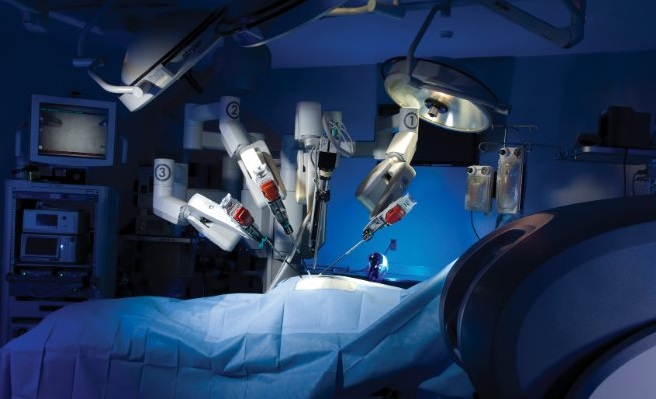Artificial intelligence could replace doctors?

A scientist has warned AI will eventually make doctors ‘obsolete’. Artificial intelligence has a ‘near unlimited capacity’ to diagnose diseases and perform surgery more accurately than medics, according to Dr Jörg Goldhahn.
Dr Goldhahn, from ETH Zurich, also argues robots may help overcome healthcare funding shortages due to them being cheaper to hire and train than humans.
Increasing amounts of health data, from apps, personal monitoring devices, electronic medical records, and social media platforms are being brought together to give machines as much information as possible about people and their diseases. At the same time machines are “reading” and taking account of the rapidly expanding scientific literature.
“The notion that today’s physicians could approximate this knowledge by keeping abreast of current medical research while maintaining close contacts with their patients is an illusion not least because of the sheer volume of data,” says Goldhahn
While the ability to form relationships with patients is often presented as an argument in favour of human doctors, this may also be their “Achilles heel”, Goldhahn points out. Trust is important to patients but machines and systems can be more trustworthy than humans if they can be regarded as unbiased and without conflicts of interest.
Furthermore, some patients, particularly younger ones and those with minor conditions, may rate correct diagnosis higher than empathy or continuity of care, he says. “In some very personal situations the services of a robot could help patients avoid feeling shame.
The key challenges for today’s healthcare systems are rising costs and insufficient numbers of doctors. “Introducing AI-driven systems could be cheaper than hiring and training new staff, Goldhahn says. “They are also universally available, and can even monitor patients remotely.”Doctors as we now know them will become obsolete eventually.”
But Dr Rampton and Professor Giatgen Spinas, from University Hospital in Zürich, argue robots will never completely replace doctors.
Medics are able to relate to a person as a whole and take into account their preferences, values and circumstances, which may influence the treatment that suits them best.
They are also concerned about how a therapy affects a patient’s quality of life, which may be ‘irreplaceable’ if a disease is terminal.
Doctors can relate to the patient as a fellow human being and can gain holistic knowledge of their illness as it relates to the patient’s life, they say.
“Feeling they’ve been heard by someone who understands the seriousness of the problem and whom they can trust can be crucial for patients,” Rampton and Spinas argue.
“Computers aren’t able to care for patients in the sense of showing devotion or concern for the other as a person, because they are not people and do not care about anything. Sophisticated robots might show empathy as a matter of form, just as humans might behave nicely in social situations yet remain emotionally disengaged because they are only performing a social role.”
Most importantly there will be no cure for some patients—care will be about helping them have the best quality of life possible with their condition and for the longest time. “Here doctors are irreplaceable,” they emphasise. “Robots cannot understand our concern with relating illness to the task of living a life.”
Regulated and well implemented, machines that learn have the potential to bring huge benefit to patients, but who wants to receive a terminal diagnosis from a robot, ask Michael Mittelman and colleagues in a patient commentary?
“Patients need to be cared for by people, especially when we are ill and at our most vulnerable. A machine will never be able to show us true comfort,” they say.
They acknowledge that AI may have the potential to become a highly useful and innovative aide in healthcare, but they hope there will always be room for humanity—human healthcare professionals.
“Ultimately, no one wants to be told he or she is dying by an entity that can have no understanding of what that means. We see AI as the servant rather than the director of our medical care,” they conclude.

